This big, colorful, and easily tamed duck was developed by British waterfowl breeder, Reginald Appleyard in the 1930s. Silver Appleyards are a true triple-duty breed, combining excellent egg-laying ability, gourmet quality meat that has less fat than most Pekins, and splendid ornamental plumage. Typical mature body weights range between 7 to 10 pounds. This is the best laying large breed we have found, with annual production being 200 to 270 white eggs weighing 30 to 44 ounces per dozen. Some females have good incubation instincts and will hatch eggs if allowed to set in a safe environment. (Keep in mind that when a bird is allowed to incubate eggs, her annual egg production is reduced.)
We first made Silver Appleyards available to the North American public in 1984. Dave wrote the American Poultry Association breed Standard and they were officially recognized by the APA in 1998.
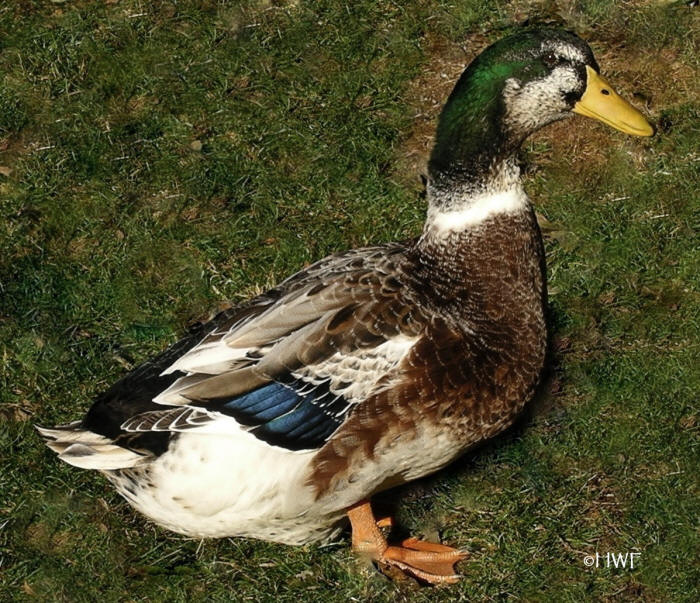
This 4-year-old drake in full nuptial plumage is a good example of the confirmation and plumage pattern and colors of an older Silver Appleyard drake. Each year as they age, they have a tendency to develop more silver in their green head plumage, and in some drakes--such as this one--the chestnut color darkens.
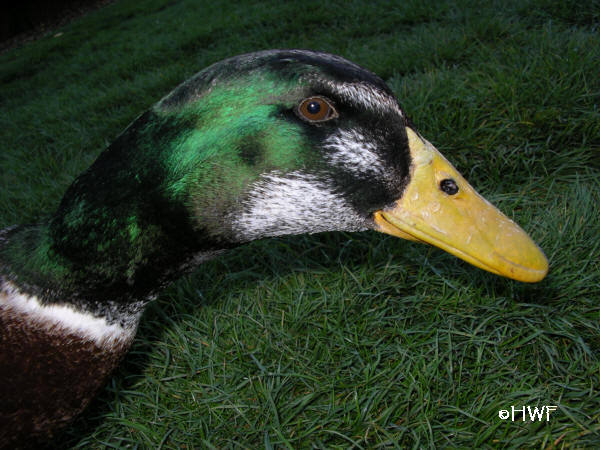
This 6-month-old drake, in full nuptial plumage, has excellent head markings. Keep in mind that the silvery white markings on the throat and face typically increase each year.
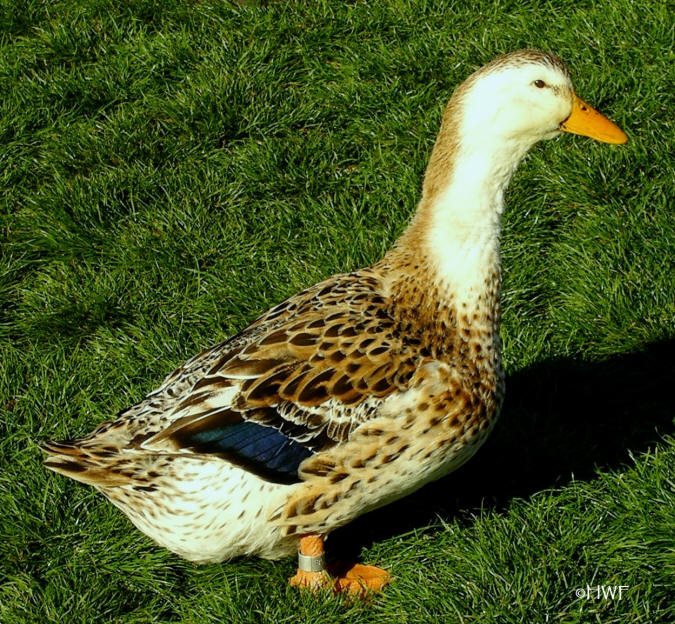
A very good 4-year-old Silver Appleyard female showing close to ideal plumage colors and pattern. Note the enlarged wing speculum that flows up onto her tertial feathers are the nearly white face and front of neck. This female--as is typical--was paler colored her first year and had a smaller wing speculum.
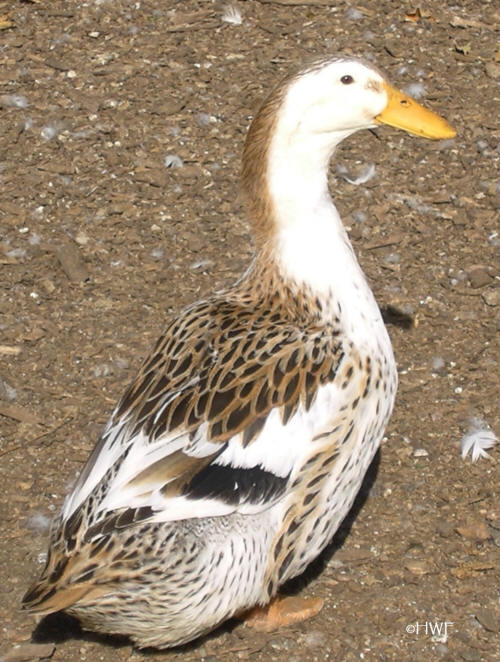
A 6-month-old Silver Appleyard female with good color and markings. By the 2nd year, the colored portions of her feathers will be richer colored and her wing speculum will be larger and have more iridescence.
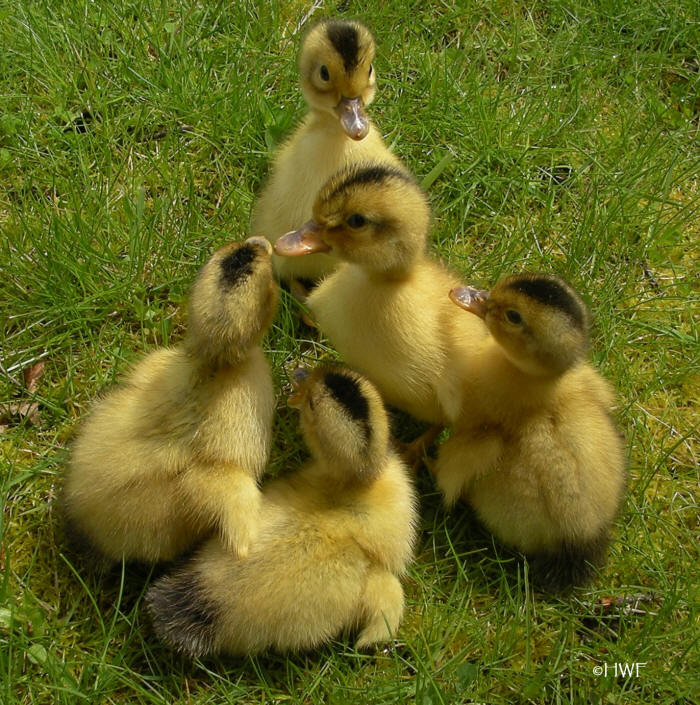
The majority of Silver Appleyard hatchlings have yellow surface color except for a mohawk pattern on top of their head and a dark tail, as shown here. Keep in mind that the head and tail markings in some Silver Appleyard day-olds are less distinct than the ones in these photos.
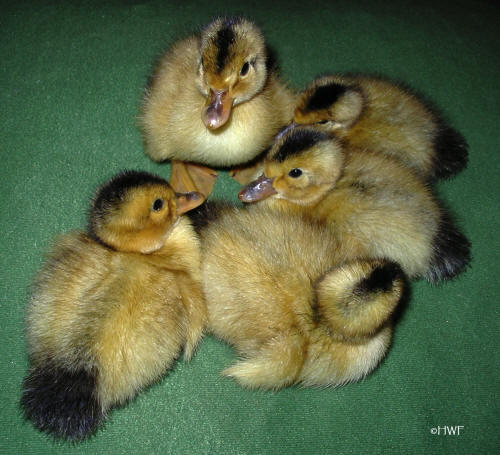
Another photo of distinctively marked Silver Appleyard hatchlings.
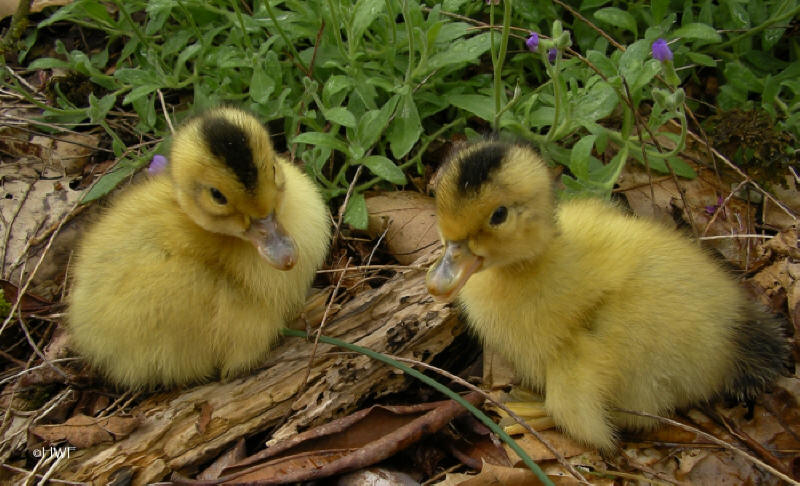
Who can resist the charms of these little ones?!
Copyright 2014 Holderread Waterfowl Preservation Center